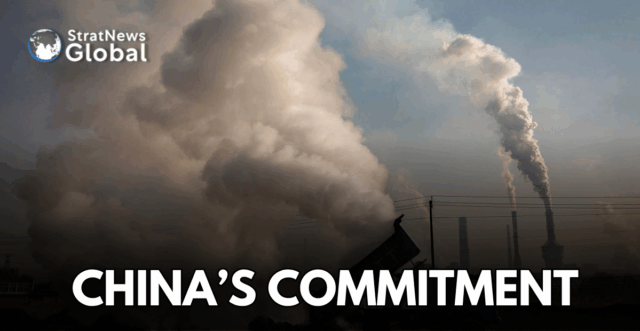China’s carbon dioxide emissions were flat year-on-year in the third quarter, extending a now 18-month streak of flat or falling emissions, an analysis for climate publication Carbon Brief found.
The trend, which began in March 2024, suggests that CO2 emissions could decline this year, provided there is no year-end spike, according to an analysis by Lauri Myllyvirta of the Helsinki-based Centre for Research on Energy and Clean Air.
CO2 output rose 0.8% in 2024 after a post-pandemic rebound at the start of the year, a previous Carbon Brief analysis found.
The government in September pledged to cap its carbon emissions by 2030 and, by 2035, reduce them by 7% to 10% from that as-yet unknown peak.
That commitment was China’s first to reduce emissions, though the scale of the cuts fell short of broader expectations. The EU climate commissioner called it “disappointing”.
The U.S. pullback from international climate agreements under President Donald Trump has created an opening for China to play a greater role in the matter, including at the U.N. COP30 climate summit in Brazil, which began on Monday.
Flat emissions in the third quarter of 2025 came as rising chemical sector emissions offset declines or plateaus elsewhere.
Transport emissions fell 5% and power-sector emissions were flat in the third quarter, even as electricity demand grew 6.1%, the analysis found.
Electricity generation from wind, solar, nuclear, and hydropower covered some 90% of that increase in demand. Gas-fired generation also cut into coal’s share.
But growth in the chemical industry kept overall emissions from falling. Plastic production grew 12% in the year in January-September, driven by surging domestic demand for plastic in food delivery and e-commerce.
China has also ramped up domestic production of polyethylene, the most widely used type of plastic, in response to the trade war with the U.S., the analysis said.
The government has also encouraged refineries to shift to chemical production to make up for a drop in transport fuel demand amid a widespread shift to electric vehicles.
(with inputs from Reuters)





